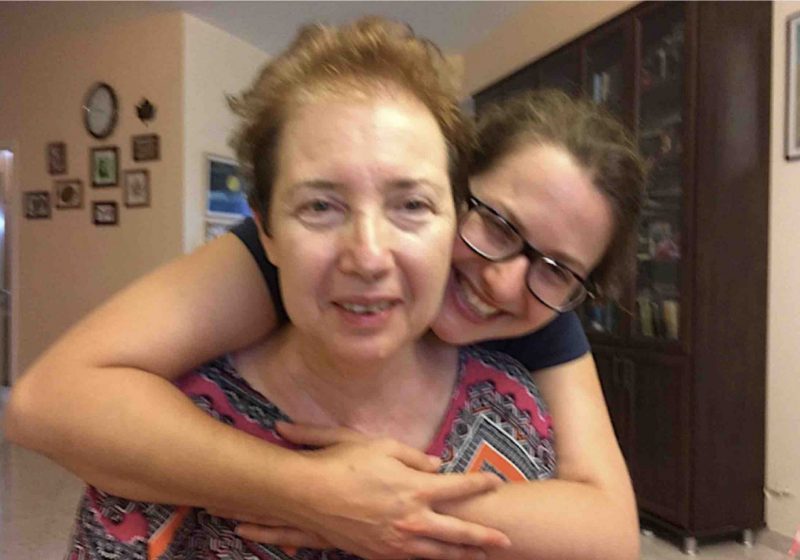Taking care of yourself is one of the most important things you can do as a caregiver. We’re sure you’ve read many articles on how to manage caregiver stress and burnout, and what to do when you find yourself in those situations. However, the tips in this article are meant to help you avoid stress and burnout in the first place!
By Gabrielle Lee

Caregiving is a marathon, not a sprint. Taking care of yourself is one of the most important things you can do as a caregiver. We’re sure you’ve read many articles on how to manage caregiver stress and burnout, and what to do when you find yourself in those situations. However, the tips in this article are meant to help you avoid stress and burnout in the first place! Prevention is better than cure.
1. Healthy mind, healthy self
Self talk works. We don’t mean the one-sided conversation where you literally talk to yourself out loud, but we’re referring to the inner voice that sometimes tells you that “you can’t do it” or “you can’t handle this!” A healthy self first begins with a healthy mind. Constructive, not destructive self-talk, can boost your self-esteem and help you overcome mood disorders.
Here’s what destructive versus constructive self-talk looks like. Destructive self-talk: “I’m such a lousy caregiver. How can I forget to remind my father about his doctor’s appointment today?” vs. Constructive self-talk: “I may have forgotten to remind my father about his appointment, but I did prepare his dinner well and he liked it. I’ll just have to ensure that I set many reminders on my calendar for the next appointment.”
Practical steps you can take:
– Listen to your internal dialogue through the day, especially in stressful or challenging situations
– Write down thoughts that make you feel bad about yourself and your abilities
– Draw a line next to the negative thoughts
– Write constructive thoughts beside the negative thoughts
2. Reflecting on the day
Most people belittle the practice of reflection. Either they’re too busy to do it, or there never seems to be a right moment for thinking. Well, perhaps the best time is right before you sleep!
There is never a right time. You may never find a spare moment in the day to do it, and when it’s time for bed we’re sure sleep is the first thing on your mind. So reflect whenever possible – in the windows of opportunities that come up. Be it on the road somewhere, in between bathing or meal times, or waiting for your loved one to be done at the doctor’s. Carry a little journal with you so that you have something to scribble your thoughts on whenever there is time.
3. Be conscious in building your support network
It can be tough or frustrating to find people who understand exactly what you’re going through. You’ll meet some caregivers who have also lost a loved one to Alzheimer’s or are currently caring for one – nurture those relationships and keep them in your network. Don’t be afraid to ask for help.
What about those who “don’t understand because they’re not in your shoes?” Don’t neglect them either. Oftentimes these are the friends who can bring some lightheartedness and cheer to your particularly tiring day, after dealing with work and then a loved one in need at home who wants your help with little everyday tasks like bathing.
When you have the energy to, take time to update these friends on what goes on when it comes to taking care of your loved one with Alzheimer’s. Tell them about your struggles and challenges, and also successes. Let them share in the burden of caring for your loved one – by knowing how to care for you too.
4. Make time to get your workout in
It may seem impossible to find time to squeeze a workout in, especially when it comes down to choosing between accomplishing your tasks as a caregiver or going out for a run. But finding some time for regular exercise can be very important to your overall physical and mental well-being.
Physical activity can help you increase your energy level so you can keep up with your daily caregiving activities. It helps reduce feelings of depression and stress, while improving your mood and overall well-being. Maintaining and improving your physical health also helps you prevent chronic diseases and conditions like diabetes, heart disease, and osteoporosis.
Some ways for caregivers to be physically active:
– Make an appointment with yourself to exercise. Schedule specific times and days of the week for physical activity and lock it in your calendar.
– Take exercise breaks throughout the day. Try clocking in three 10-minute “mini-workouts” instead of 30 minutes all at once.
– Exercise with a friend and get the added benefit of emotional support.
– Ask for help at home so you can exercise. If that’s not possible, find ways to be active with your loved one – an activity that both of you can benefit from.
We hope the 4 ways that we’ve suggested helps you in avoiding caregiver fatigue and burnout.
Do you have other ways that help you in your journey? Share with the community by commenting below.






























